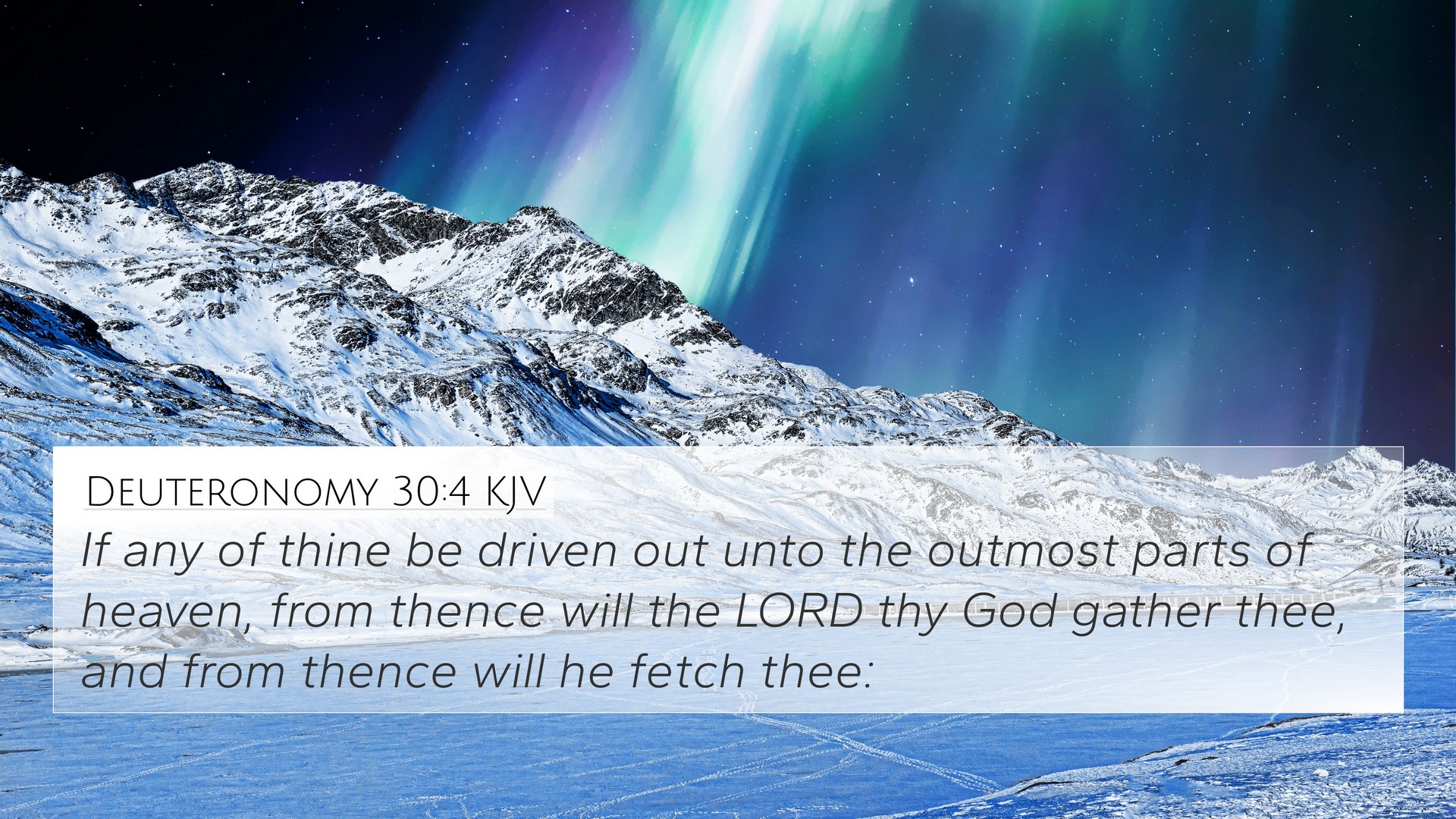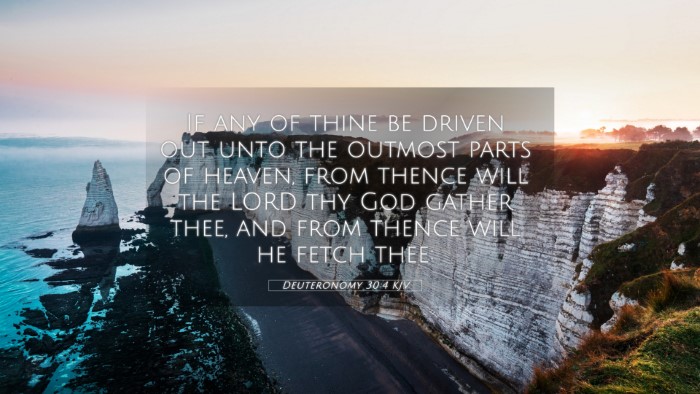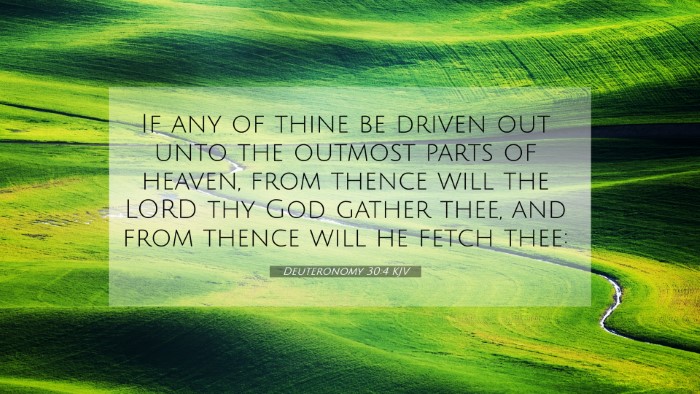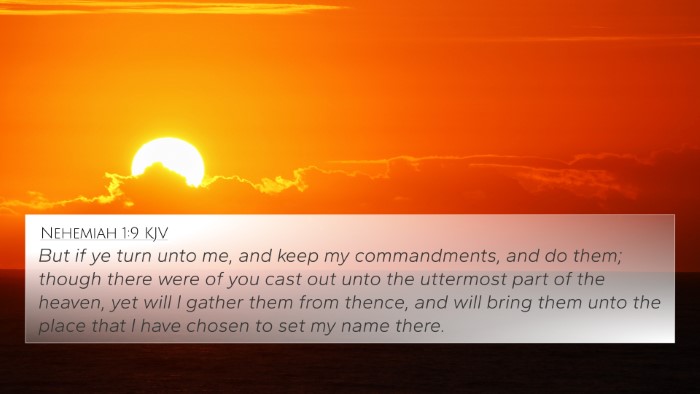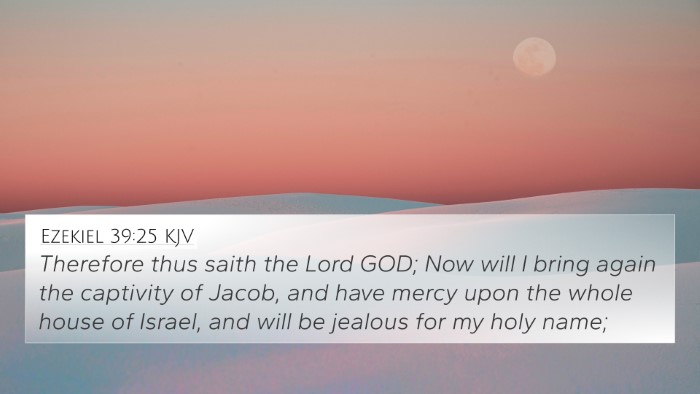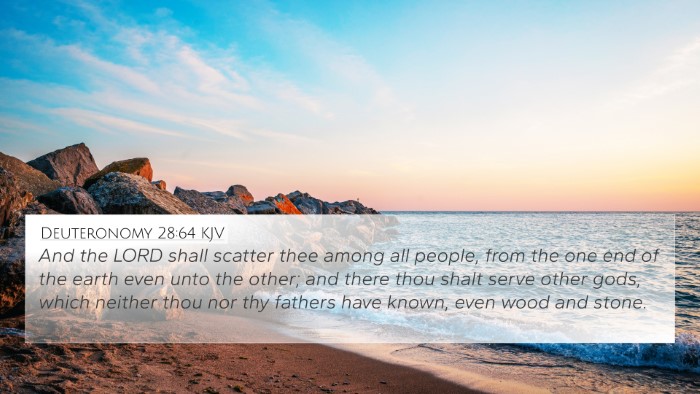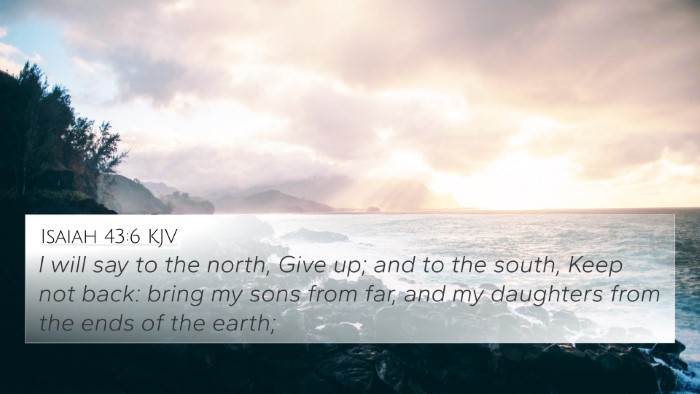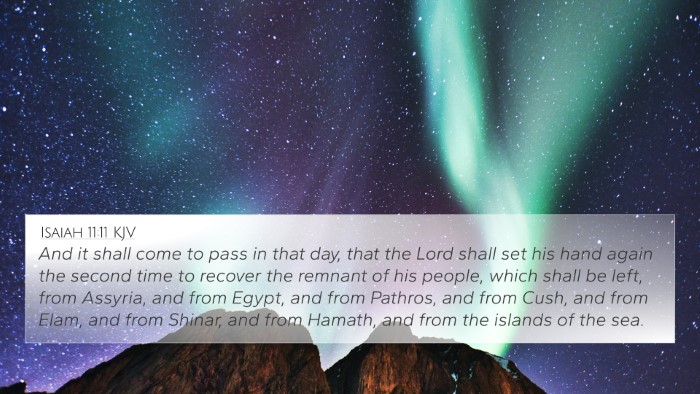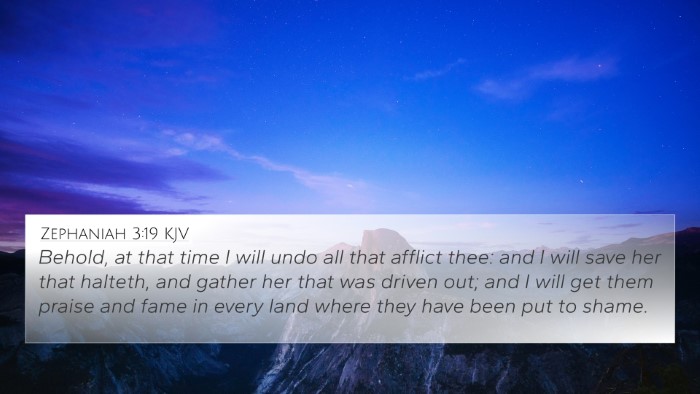Understanding Deuteronomy 30:4
Deuteronomy 30:4 states: "If any of you are driven out to the farthest parts under heaven, from there the Lord your God will gather you, and from there He will bring you." This verse conveys God's promise of restoration and ultimate gathering of His people, even from distant lands.
Summary of Insights
In analyzing Deuteronomy 30:4, we can draw insights from noted public domain commentaries such as those by Matthew Henry, Albert Barnes, and Adam Clarke. Below is a synthesized interpretation:
- Matthew Henry: Emphasizes the grace of God in bringing back the scattered Israelites. Henry suggests that God's covenant fidelity assures His people that no matter how far they stray, He will pursue them for restoration.
- Albert Barnes: Highlights the geographical scope of God's promise, indicating that even from the most remote locations, God will reassemble His people. Barnes relates this to the greater theme of redemption throughout the Bible.
- Adam Clarke: Focuses on the metaphorical significance of 'scattering' and 'gathering', suggesting spiritual implications of sin leading to estrangement from God, yet assured the hope of returning through repentance.
Key Themes and Meanings
This verse encapsulates several key themes:
- Divine Faithfulness: Assurance that God remains faithful to His promises.
- Restoration: The promise of returning and being gathered represents hope and reconciliation.
- Universal Scope: Applicable not just to Israel but to all who feel distant from God, indicating that His reach extends globally.
- Conditionality of Return: Implies a need for acknowledgment of one’s situation and a willingness to return to God.
Bible Verse Cross-References
Deuteronomy 30:4 connects deeply with several other scriptures, illustrating its broader context within the biblical narrative:
- Isaiah 11:12: "And He will set up a banner for the nations, and will assemble the outcasts of Israel." This reflects the theme of gathering exiled peoples.
- Jeremiah 29:14: "I will be found by you, says the Lord, and I will bring you back from your captivity." This verse echoes the promise of restoration.
- Ezekiel 34:12: "As a shepherd seeks out his flock, so will I seek out my sheep." This reinforces the idea of God actively seeking His people.
- Matthew 24:31: "And He will send His angels with a great sound of a trumpet, and they will gather together His elect." The New Testament reiterates the promise of gathering.
- John 10:16: "And other sheep I have which are not of this fold; them also I must bring." This emphasizes a broader inclusion of people into God’s family.
- Romans 15:12: "And again, Isaiah says: 'There shall be a root of Jesse; He who shall rise to reign over the Gentiles, in Him the Gentiles shall hope.'" This bridges the Old and New Testament themes of gathering from afar.
- Revelation 7:9: "After these things I looked, and behold, a great multitude which no one could number, of all nations, tribes, peoples, and tongues..." This points to the ultimate gathering of all believers.
Tools for Bible Cross-Referencing
To fully understand the connections between these verses and Deuteronomy 30:4, consider utilizing the following tools:
- Bible Concordance: A comprehensive index of terms and topics in the Bible.
- Bible Cross-Reference Guide: Resources designed to highlight links between scriptures.
- Cross-Reference Bible Study: A methodology for studying the Bible that emphasizes interconnections.
- Bible Reference Resources: Books and tools that provide extensive listings of cross-references.
Comparative Bible Verse Analysis
Understanding Deuteronomy 30:4 through comparative analysis of scripture allows for deeper insights into biblical themes:
- Examine the parallels between Old Testament prophecies and New Testament fulfillments.
- Identify the relationship between various theologians’ interpretations of restoration, gathering, and God’s faithfulness.
- Explore the thematic connections between the Gospels and Old Testament prophecies about gathering.
Conclusion
Deuteronomy 30:4 serves not merely as a historical assurance to Israel but as a universal reminder of God's relentless grace and commitment to restore those who are lost. Through cross-referencing with other Bible verses, one can trace the breadth of this promise throughout scripture, ultimately revealing God's plan for redemption across both the Old and New Testaments.
